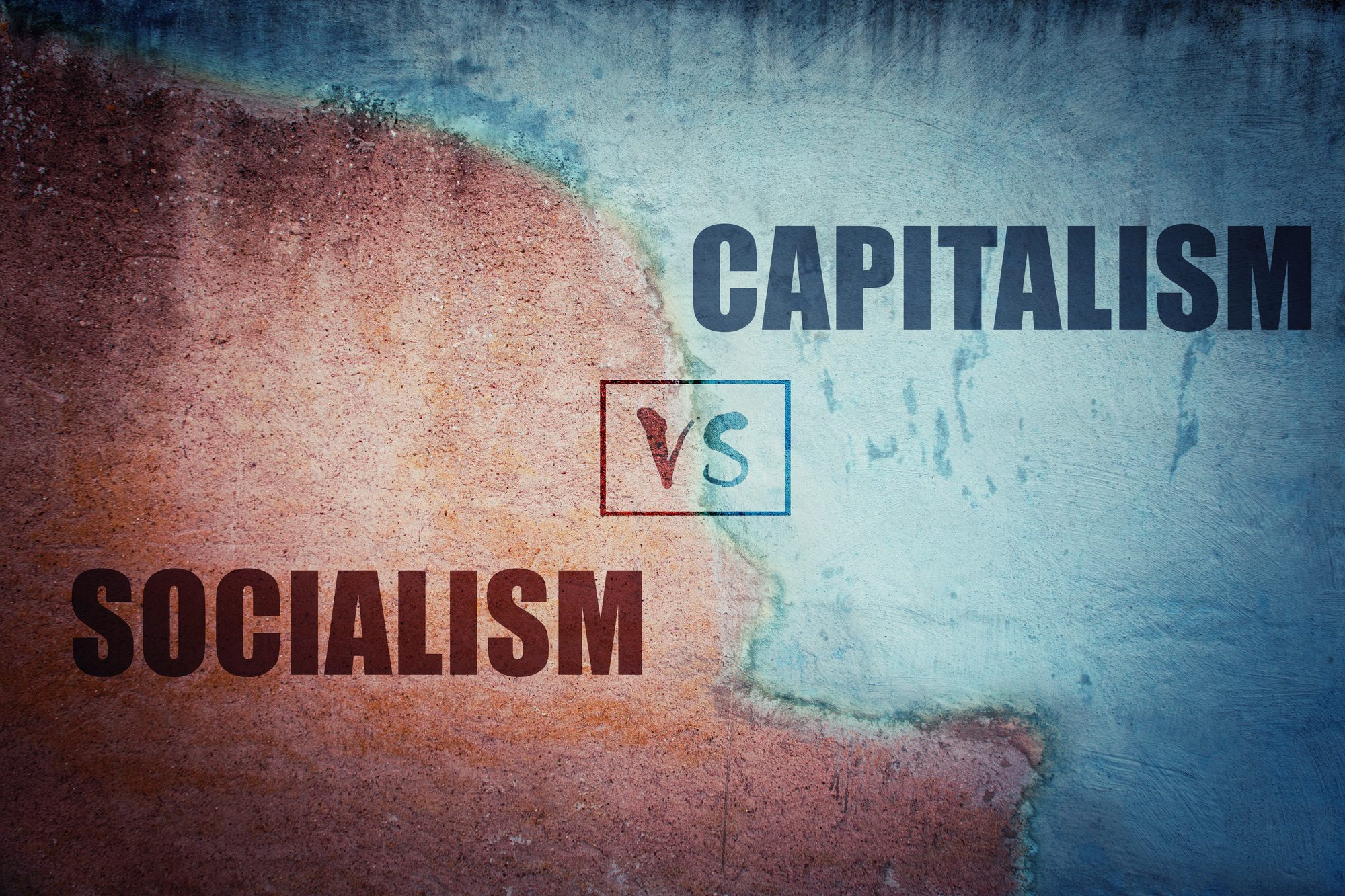Comparing Capitalism and Communism?
Stacking Up the 20th Century Political & Economic Foes/Woes
Communism and capitalism are two very distinct economic and political systems with different ideologies and values. The modern comparison is often between the United States (capitalism) and China (communism), but what does each system truly mean?
American Driven Capitalism:
Capitalism is a market-based economic system in which private individuals and businesses own and control the means of production and distribution of goods and services, and prices are determined by supply and demand. Capitalism is characterized by private property rights, free enterprise, and competition.
Chinese Communism
Communism, on the other hand, is a political and economic ideology that advocates for a classless society in which all property and resources are owned and controlled collectively by the community, and wealth and income are distributed equally among all members. In a communist system, the means of production and distribution are controlled by the state or a collective, and prices are set by a central authority.
Critical Differences
One key difference between communism and capitalism is the role of the government. In a capitalist system, the government’s role is typically limited to protecting property rights and ensuring a level playing field for competition, while in a communist system, the government plays a much more active role in the economy and society, often controlling all aspects of production and distribution.
Another difference is their approach to economic inequality. Capitalism tends to lead to greater income inequality, as those who are successful in the market are able to accumulate wealth and resources, while those who are not are left behind. Communism aims to reduce income inequality by redistributing wealth and resources, but has historically been criticized for stifling individual initiative and creativity, and leading to widespread shortages and inefficiencies. For example, if you worked hard for the same pay as another individual who put in zero effort, you would quickly lose motivation to work hard.
Differences Within Each Economic System
It’s worth noting that there are many different forms of capitalism and communism, and the real-world implementations of these systems can vary widely depending on the specific historical and cultural context.
China, for instance, has been continually revamping their communist based system to make room for seemingly capitalist features. This is no doubt due to the long term strategy of the Chinese that allows them to be very diligent about how incoming capitalistic influences are managed and executed within their borders.
The former Soviet style of communism was far more rigid than what the Chinese are in the midst of embracing.
Soviet Communism Versus Chinese Communism:
- Ideological flexibility: Chinese communism has shown greater ideological flexibility than Soviet communism, incorporating elements of market economics and promoting the “China model” of development, think of it as open doors, but there’s still a terrifying bouncer at the door.
- Economic policies: China has embraced a more market-oriented approach to its economy, allowing for private enterprise and foreign investment, whereas the Soviet Union maintained a more strictly centralized, planned economy… How’d that work out for you, Stalin?
- Political structure: The Communist Party of China has maintained a monopoly on political power, but has allowed for a more decentralized decision-making process compared to the highly centralized system in the Soviet Union. This is the beauty of being a late arrival to the communism power game. You can see what has been tried, what worked, and what did not.
- Relations with the West: China has sought to engage with the West, particularly in the economic sphere, while the Soviet Union was often more confrontational and isolated.
- Approaches to dissent: The Chinese government has often been more repressive in its treatment of dissent compared to the Soviet Union, which was more likely to tolerate limited forms of opposition, which is starting to sound more and more like the United States and the whole January 6th 2021 debacle.
There are different forms of capitalism as well, but they appear to be linked in a more evolutionary way, as opposed to co-existing at the same time in different places:
The Evolution of Capitalism Styles:
- Laissez-faire capitalism: A form of capitalism with minimal government intervention, allowing for free market forces to determine economic outcomes, a true free-for-all (free as in freedom, not as in ‘no charge’).
- State capitalism: A form of capitalism in which the government plays a significant role in the economy, often through state-owned enterprises and state control of key industries.
- Social democracy: A form of capitalism that seeks to balance market forces with social welfare, typically through government intervention in the form of progressive taxation, social safety nets, and regulation of the labor market. You’ll note shades of this under the plans of the 2020+ Democrats in the United States.
- Mercantilism: An early form of capitalism that emphasizes government control over trade and the accumulation of wealth by the state, rather than by individuals. This echos the sentiment of the Dutch East India company from the Netherlands.
- Green capitalism: A form of capitalism that seeks to integrate environmental sustainability into the economic system, often through government regulation and incentives for environmentally-friendly business practices… I truly cannot see this being a valid system, but there are some who like to dream. We’ll let them stay asleep, I guess.
No Real Choice
Truly, what choice do we have. We are in many ways born into a system that existed prior to our arrival on this Earth. Can you move from one political and economic system to another? It may be possible, but it hardly seems practical. I prefer capitalism as I like to work hard and earn rewards for doing so… Perhaps that is just because I was born in a capitalist country with a father who worked hard and provided a great life for his son.






